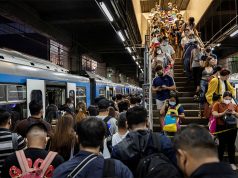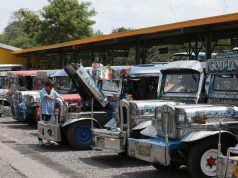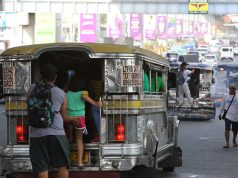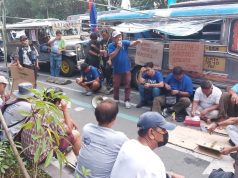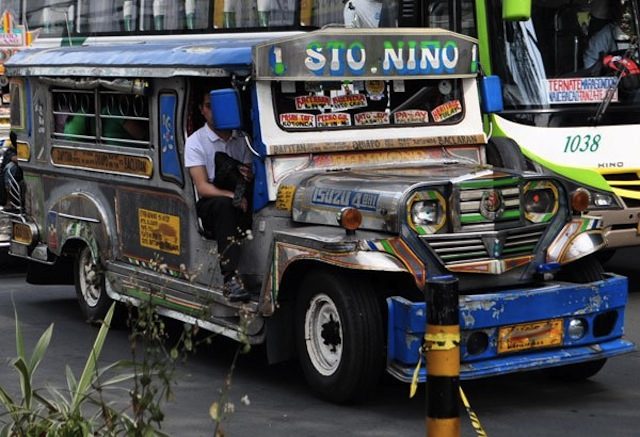
MANILA, Philippines – Transport operators and drivers launched another protest action against the government’s move to phase out 15-year-old jeepney units.
Members of the Pagkakaisa ng mga Samahan ng mga Tsuper at Operators Nationwide (Piston) started to gather in front of the National Housing Authority office in Quezon City early Monday morning for a protest caravan that will start on Welcome Rotonda at 9:30 a.m. and culminate on Mendiola Street in San Miguel, Manila at 11:30 a.m. near the gates of Malacañang.
Drivers and operators from groups such as No To Jeepney Coalition, Federation of Jeepney Operators and Drivers Association of the Philippines, Alliance of Transport Organizations-Pasig, and the Pangkalahatang Sanggunian Manila and Suburbs Drivers Association have also joined Piston in its protest action.
The groups are opposing the Department of Transportation (DoTR)’s program to get rid of old models of jeepneys that would be replaced with electric jeepney units.
Piston said the plan would result in increased fares because it would be very expensive to replace jeepney engines with the more fuel-efficient units —Euro 4 compliant engines.
Replacement subsidy ‘not enough’
The protests are being stepped up after guidelines were issued by the Department of Transportation (DOTr), granting jeepney operators a three-year period to replace their existing units with modern, fuel-efficient jeeps.
The government has set aside more than P2 billion to cover some 28,000 jeepneys, but transport groups said this is not enough.
At 9:30 a.m, the protest caravan began to push on toward Welcome Rotonda in Manila, where organizers had planned a short program.
From there, they had planned to proceed to Mendiola at 11:30am.
According to PISTON-NCR president Modie Floranda, “we are dismayed that we’ve been serving people all this time, so why are they punishing us with loss of livelihood. Is this the ‘change’ promised by President Duterte?”
If the policymakers’ idea of “change” only means that only “capitalist monopolies in transportation” will thrice while the industries that have long been serving the people will fall by the wayside, then, Floranda said, “hindi makatarungan naman yung sinasabing pag unlad o pagbabago sa ating lipunan [the change in our society that they promised is unjust].”
The protest on Monday is nationwide, with similar caravans outside Metro Manila like Zambales, Pampanga and Bataan.
In Metro Manila, Floranda conceded that the protest did not have much impact.
The effect – in terms of tighter traffic – was mostly felt in Manila, particularly at the Welcome Rotonda, España Street and Mendiola.
The protest caravan was set to end at 2 pm.
Program launched in June
The DoTR launched last month the Public Utility Vehicle Modernization Program.
The department said the program seeks to provide safe, comfortable and environmentally sustainable mode of public transport to commuters and enhance passengers’ experience by upgrading vehicles to meet safety, energy efficiency and emission standards through overhauling of the public transportation system.
Among the major components of the program are the omnibus franchising guidelines (OFG) that introduce reforms in granting of franchises by implementing new route planning rules and improved standards for operators and vehicles.
The release of the guidelines has paved the way for the lifting of the moratorium on the acceptance of new applications/petitions for the issuance of certificates of public convenience because of irregularities in the granting of franchises.
The moratorium, which was implemented since 2003, has increased the demand for transportation causing the proliferation of unauthorized franchises, inadequacy of public transport supply and overall traffic, and safety problems in road-based public transport.
Under the OFG, public transport routes will be planned by local government units (LGU) based on the current and projected travel patterns in their respective areas.
These routes will be contained in the local public transport route plans of LGU that will serve as basis for franchise issuance by the Land Transportation Franchising and Regulatory Board.




